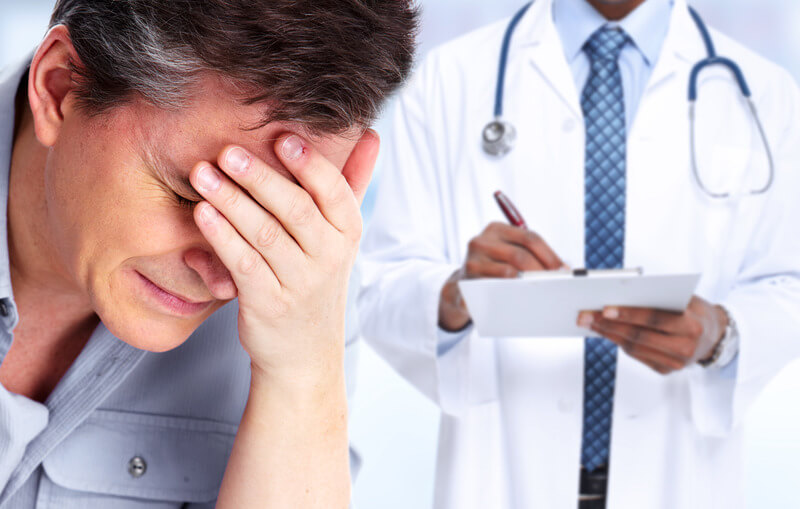
Car accidents are unpredictable and disorienting. They leave more than just physical injuries; they stir a mix of shock, confusion, and a pressing question amidst the chaos: “Should I go see a doctor after a car accident?” While you may stand at the accident site believing you’ve walked away unscathed, the truth beneath the surface could tell a different story.
Deciding when to seek medical treatment isn’t just about your immediate injuries; it’s about ruling out more severe injuries that aren’t visible to the naked eye. This post will examine the factors to consider after a Virginia car accident.
The Crucial First Step: Seeking Medical Attention
In the immediate aftermath of a car accident, your body is still in shock. You may not realize the full extent of your injuries. While pushing through discomfort or waiting out what feels like minor aches may seem manageable, prioritizing a medical evaluation is not just about addressing potential injuries, it’s a foundational step with significant implications for your health, insurance, and future personal injury claim.
Unveiling Hidden Injuries
The human body’s response to sudden trauma can be misleading. Adrenaline can mask your pain, leading you to believe you are injury-free. However, injuries like internal bleeding, concussions, or soft tissue damage—commonly whiplash—can be undetectable in the immediate aftermath of your accident. Symptoms can manifest hours or even days later. Early medical intervention is paramount to identifying these hidden injuries, ensuring they don’t evolve into more serious conditions.
The Delayed Onset of Symptoms
Many car accident injuries have a deceptive nature. For instance, the full effects of a concussion or a soft tissue injury may not become apparent until the body’s initial shock subsides. Without prompt medical evaluation, these conditions can worsen, complicating the recovery process and treatment options.
Documentation for Insurance and Legal Purposes
The documentation generated from your medical visits is a solid record of your injuries and the care you received. These records are vital when filing insurance claims or if legal action becomes necessary. They provide a timeline that links your injuries directly to the accident, a critical element in substantiating compensation claims.
Common Injuries from Car Accidents
Car accidents in Virginia can result in a wide range of injuries. Some of the most common include:
- Whiplash. Whiplash is a common neck injury caused by rapid back-and-forth movement, especially prevalent in rear-end collisions. Symptoms of whiplash may include neck stiffness, pain, and headaches starting at the base of the skull.
- Concussions. These traumatic brain injuries are caused by a blow to the head or a sudden jolt. They can lead to confusion, dizziness, blurred vision, and memory problems. It’s vital to seek immediate care, as symptoms can escalate as they take time to appear.
- Fractures. Broken bones in car accidents can vary widely, from simple breaks that require minimal treatment to complex fractures needing surgical intervention. Signs include visible deformity, swelling, bruising, and intense pain at the injury site.
- Internal injuries. These injuries are less obvious but can be life-threatening. These might involve internal bleeding or damage to organs like the liver, kidneys, or spleen. Symptoms could include abdominal pain, deep bruising, or dizziness, indicating the need for urgent medical evaluation.
Identifying and treating injuries promptly can significantly influence recovery, highlighting the importance of medical attention after any car accident.
How Long Do You Have to Seek Medical Treatment After a Car Accident?
From a purely legal perspective, the clearer the timeline the better. However, everyone is different and you should seek medical attention to the extent you feel necessary under the circumstances. Always talk to your doctor about any medical issues including pain or injury from a car accident. Early intervention can prevent complications and help you recover physically.
The Risks of Delaying Medical Treatment
Delaying medical treatment after a car accident in Virginia can have serious repercussions. First, you risk exacerbating any underlying injuries. Potentially manageable issues could become chronic conditions. The longer injuries go untreated, the more complicated the recovery process becomes. That could extend rehabilitation periods and increase medical costs.
From a legal and insurance standpoint, delays can significantly undermine claims. Insurance companies may question the severity of injuries or argue that they are not related to the accident. This skepticism can lead to decreased compensation or outright denial of claims. Similarly, in legal proceedings, the absence of prompt medical documentation weakens the evidence of injury causality, impacting the potential for successful personal injury claims.
Talk to your doctor or seek emergency medical care if necessary. If you have the ability, use your personal health insurance to pay for your treatment. Although you may feel that using health insurance is detrimental in your case, Virginia is a collateral source state and that means you will be reimbursed for any amounts paid out of pocket, including health insurance payments plus the difference in what was billed.
Overcoming Obstacles to Medical Care
Victims of car accidents in Virginia may encounter several challenges in deciding to seek medical care. Insurance coverage disputes can delay treatment, with providers hesitant to proceed without assurance of payment. Transportation limitations can make getting to appointments difficult if your vehicle is severely damaged or totaled. Additionally, concerns over mounting costs may deter individuals from seeking necessary treatments or follow-ups.
It’s crucial to address these obstacles proactively. Communicate with insurance companies, explore alternative transportation options, and discuss payment plans or financial assistance with medical providers.
The Importance of Documenting Your Medical Journey
Detailed records of injuries, symptoms, treatments received, and associated medical expenses form the cornerstone of any insurance claim or legal case. These documents are critical evidence of the accident’s impact on your health and financial well-being. They facilitate the smooth processing of insurance claims and strengthen your position in potential legal proceedings.
Keep a journal documenting your recovery and how the accident has affected your life. If your case goes to litigation, you may need to refer back to it in a year or two. You’ll likely need to attend a deposition under oath, and it’s important to recall how the accident affected your daily life.
Contact River Run Law
If you have questions about whether you should go see a doctor after a car accident, please contact River Run Law. We are a boutique law firm providing personalized representation to each client.
With decades of combined experience, we know what it takes to build a solid case for compensation in a car accident. Please contact us today to schedule a free, no-obligation consultation.
Where You Can Find Our Richmond Office

